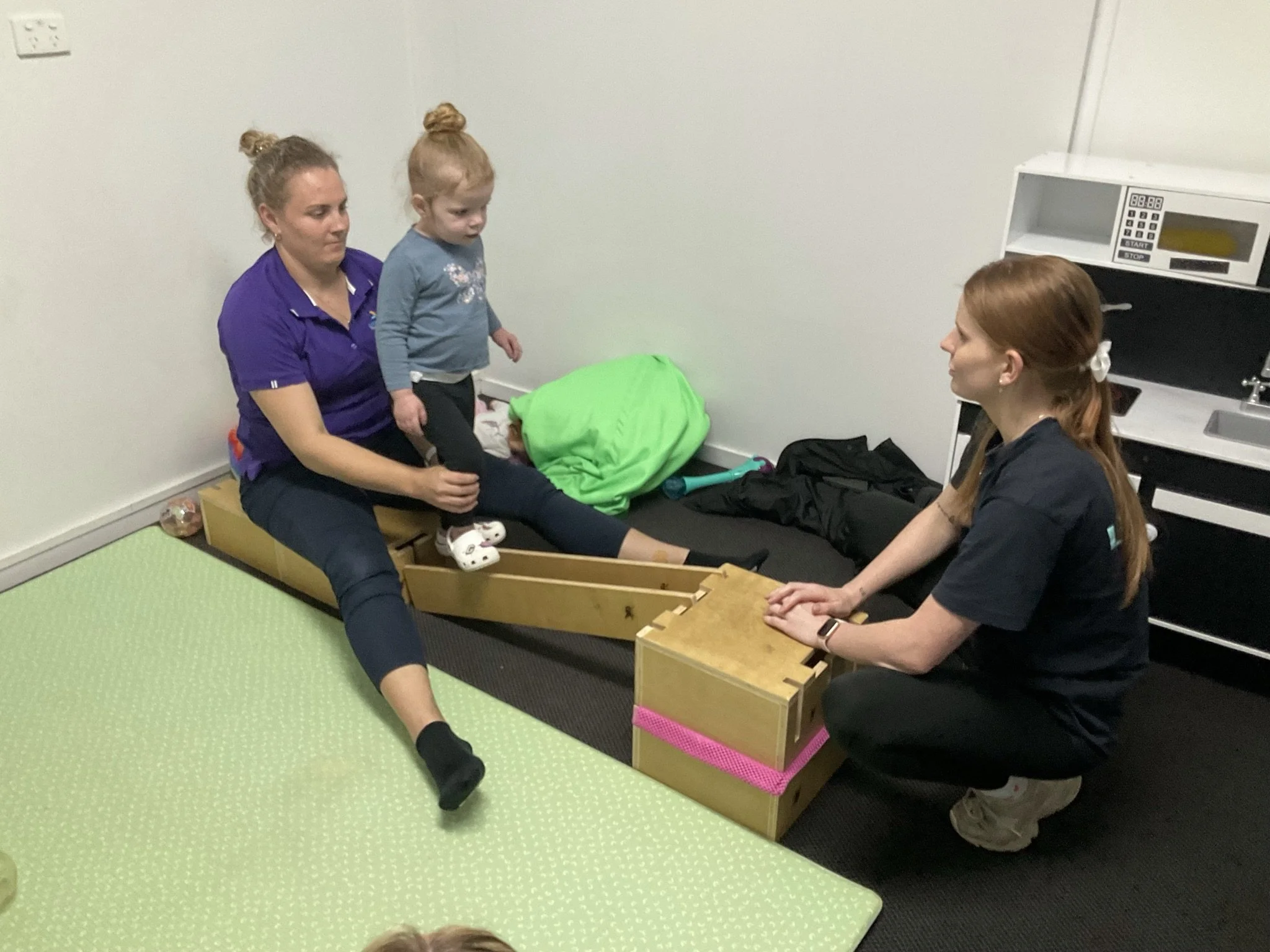What are the benefits of a multidisciplinary therapy clinic?
Physio & Director Liz working with OT Emma during a joint therapy session.
Here at Lifespan Therapies, we have a unique multidisciplinary approach to therapy as we have Allied Health professionals across Physiotherapy, Occupational Therapy, and Speech Pathology all under one roof. We also have Allied Health Assistants (AHAs) who complete therapy using detailed plans created by therapists.
What are the benefits of a multidisciplinary approach?
1. Comprehensive Holistic Care
Children often face challenges that span multiple areas, including physical, cognitive, emotional, and social development. A multidisciplinary team—including Physiotherapists, Occupational Therapists, Speech Pathologists, and others—ensures that all areas are assessed and supported, offering a holistic approach that enhances overall well-being.
2. Tailored & Collaborative Treatment Plans
Each child has unique needs, and multidisciplinary teams can develop personalised, coordinated treatment plans that integrate insights from each Allied Health professional. This leads to a cohesive plan where interventions complement each other, helping children progress more efficiently and effectively. For example, if a child has both motor and speech delays, a Physiotherapist and a Speech Pathologst can coordinate strategies that simultaneously build motor and communication skills.
3. Streamlined Communication and Support for Families
Having a single team allows families to receive consistent guidance and regular updates from all professionals involved, simplifying communication and ensuring families feel supported and informed. Team meetings allow therapists to align their approaches, which helps caregivers implement a cohesive strategy at home, reinforcing the child’s therapy goals.
4. Early Detection of Overlapping Issues
Professionals from different disciplines bring varied perspectives, allowing the team to identify interrelated challenges early. For instance, an Occupational Therapist may observe sensory processing difficulties that could be affecting the child’s communication, which the Speech Pathologist can then address in their sessions. This interconnected insight helps target underlying issues and encourages faster progression towards goals.
5. Social-Emotional Wellbeing & Confidence
Working with multiple professionals who each provide a unique type of support can create a positive, confidence-building environment for the child. This team approach can help children feel safe, understood, and motivated, particularly when they see different therapists working together on their behalf.
6. Efficient Goal Setting and Achievement
Multidisciplinary teams collaborate to set goals that encompass the child’s whole development. When one therapist’s goals align with and support another’s, children are more likely to progress quickly because each session reinforces progress in other areas.
7. Flexible, Evolving Care Plans
Children’s needs change over time, and multidisciplinary teams are equipped to adjust treatment plans quickly and collaboratively. With specialists regularly evaluating progress together, the care plan can evolve in real-time to suit the child’s changing abilities, interests, and goals.
Overall, multidisciplinary teams create a comprehensive support system that’s highly adaptable and responsive, helping children reach their full potential across multiple areas of development.
We pride ourselves on working together as a therapy team with a family-centred approach, as we know you have the most knowledge about your loved one.

